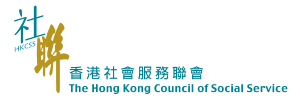Hong Kong is a society comprised of multiple cultures. Increasing steadily year by year, ethnic minorities account for 8.4% of Hong Kong’s population. Many of them were born and grew up in Hong Kong, but it is still difficult to integrate into society. Women, in particular, may experience more problems.
“In fact, their religion, traditional culture and language. The reasons will also affect their adaptation in Hong Kong, especially women who married to Hong Kong.” Ms. Ruth KONG, Supervisor of Support Service Centre for Ethnic Minorities, and Chomolongma Multicultural Community Centre, Yuen Long Town Hall, said.
Sponsored by the Kadoorie Charitable Foundation, the Hong Kong Council of Social Service works with Hong Kong SKH Lady MacLehose Centre and Yuen Long Town Hall, to organize “P.R.A.I.S.E. Project for Adaptation, Inclusion and Social Integration for Ethnic Minorities”. One type of service is to support the employment and physical and mental health of ethnic minority women. An earlier study by the HKCSS found that in 7 aspects of life, such as employment and education, nearly 30% of ethnic minorities. Health is a major concern to them matter now or 10 years later. Therefore, the project focuses on health issues. Because for ethnic minority women, as simple as doing exercise to stay healthy, may not be an easy option.
“We have difficulty doing exercise in Hong Kong because Muslim women are not allowed to bare their bodies and wear swimsuits. We need to wear long sleeves and pants. It’s difficult when it’s so hot.” Istiani, an Indonesian service user, said.
“Because of the job and time that we need to take care of the kids and home. Most of the ethnic minority ladies cannot join the gym.” Sujita, a Nepalese service user, said.
“Before I came to Hong Kong, I joined the gym with my friends in Nepal. After coming to Hong Kong, it was stopped. I had no idea where is a gym and I had no friends. Moreover, I was pregnant, and had a baby. So, I was not able to join a gym.” Preena, a Nepalese service user, said.
Yuen Long Town Hall organizes different types of health talks, physical examinations, and a relatively friendly fitness room. Ruth said that minority ethnic women or young people can exercise in the fitness room. That can expand their social circle because these ethnic minority-friendly measures can encourage the meeting of ethnic minority women to exercise. She suggests scheduling time slots specifically to open for ethnic minority women to participate in the exercise, such as swimming pool or fitness room, to provide short periods of time specifically for ethnic minorities or women to participate.
Preena said “Now I have friends here, even a trainer is provided. So, I have had been participating gym here for 3 years. All of us are like family with each other. So, joining the gym class is really fun. Now, whenever I walk on the street, I can see familiar faces everyday. I can say hi and talk with them.”
Istiani said “I hope Hong Kong has these facilities to let us do sports and play together.”
Promoting Health Education
Providing knowledge and opportunities to prevent diseases is also very important, which can encourage ethnic minority women to pay attention to the health of them and their families, to achieve the goal “Prevention is better than cure”. Ruth said “Maybe due to language problems, or Minority Ethnic Women may not know where the hospital or clinics for specific physical checking is. When we hold physical check-up events, they will participate actively.”
Sujita said “Related to health, I joined the cervical cancer screening programme. I learned that in Hong Kong. Even the young girls get vaccinated to prevent the disease that I didn’t know before. I’m so happy that I gained knowledge about the vaccination and this project is good.”
Concern on Minority Ethnic Early Childhood Education
Besides, the”P.R.A.I.S.E. Project for Adaptation, Inclusion and Social Integration for Ethnic Minorities” also provides ethnic minority women with knowledge about educating children. The ethnic minority women realize that their children are born in Hong Kong which is an environment different from where they grow up. So they have to learn how to educate their children. The project hopes to encourage ethnic minority families to keep good living habits, bettering their physical and mental health.
“I have two kids. I don’t know much about parenting. I’m a new parent. After joining the PRAISE, I realized what actually parenting is. It is not just raising the children. We have to give them good knowledge. Teach them good and healthy habits. These are the things that make me keep connected to PRAISE.” Hema, a Nepalese service user, said.
Video Production: Fluid Production
